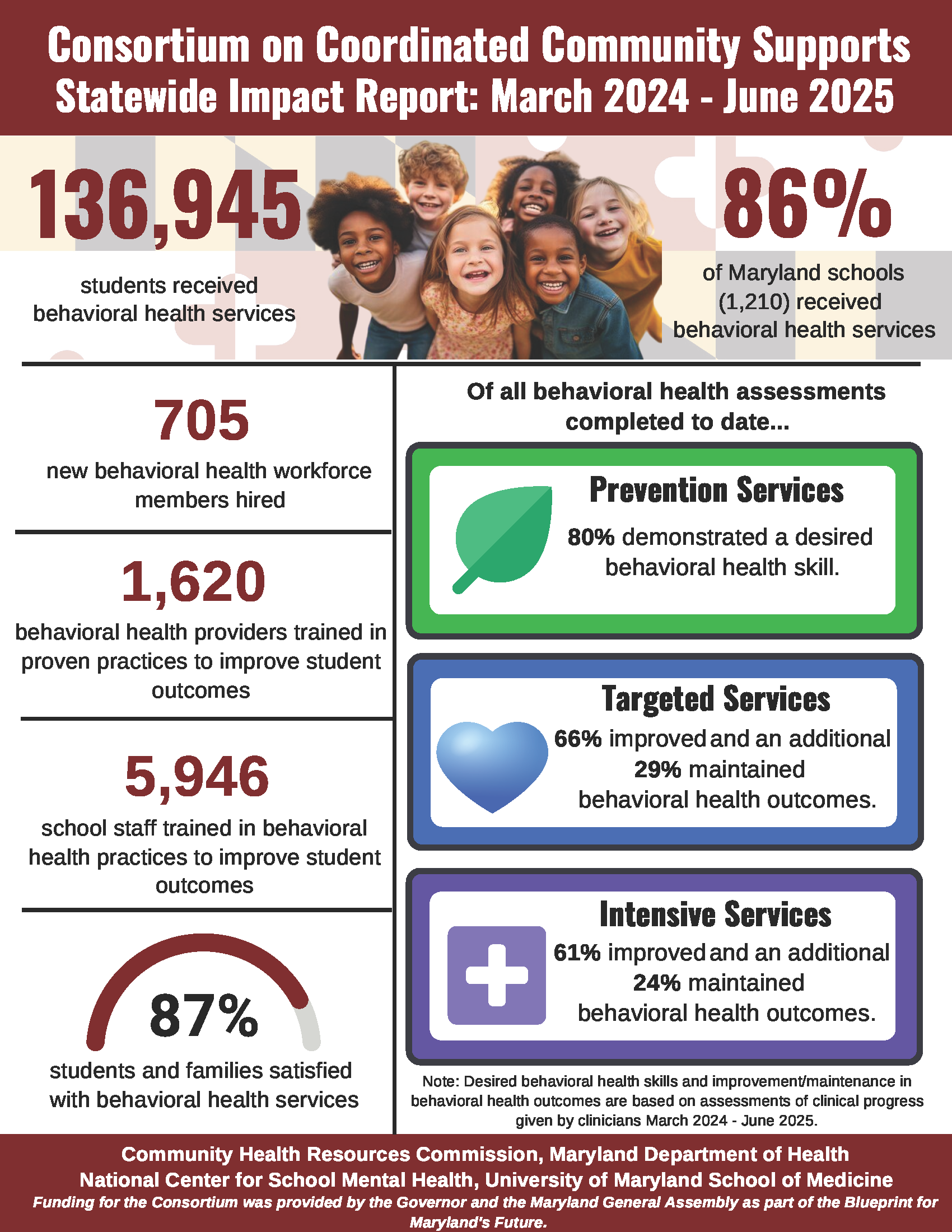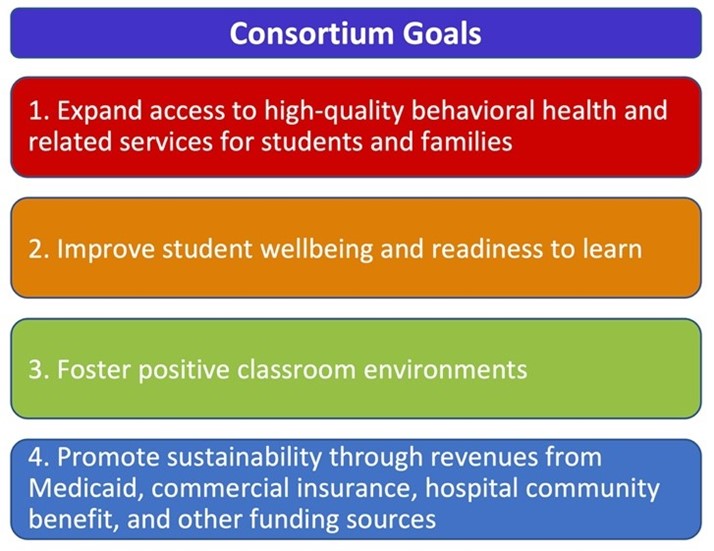Maryland Consortium on Coordinated Community Supports Updates
Maryland Consortium on Coordinated Community Supports
The Maryland Community Health Resources Commission the Maryland Consortium on Coordinated Community Supports, and other state leaders announced $96 million in new grant awards to support student mental health for the 2025-2026 school year. The programs will serve all 24 jurisdictions in the state and are projected to serve 80% of Maryland schools. Funding for the Consortium was made available by the Governor and the Maryland General Assembly through the Blueprint for Maryland's Future. You may find a full list of
grant awards made by clicking the red text.
Background
The Maryland General Assembly created the Maryland Consortium on Coordinated Community Supports as part of the Blueprint for Maryland's Future in recognition of the critical role that mental health and wraparound services will play in supporting student achievement. The Consortium is a 25-member entity responsible for developing a statewide framework to expand access to comprehensive behavior health services for Maryland students. The Maryland Community Health Resources Commission (CHRC) serves as the Consortium's fiscal agent and is responsible for providing staff support for the Consortium. The National Center for School Mental Health
is providing technical assistance. The Consortium began its activities during the summer of 2022. The General Assembly leadership selected David D. Rudolph to serve as the Consortium's chair.
The Consortium is responsible for expanding access to comprehensive behavioral health services for Maryland students, pre-K through grade 12. As part of this mandate, the Consortium is funding new and expanded programming in all 24 jurisdictions; fostering collaboration between providers, schools, and families; and providing training and technical assistance in evidence-based approaches for clinicians and educators.



Fostering Collaboration: The Blueprint requires the Consortium to form local “Community Supports Partnerships" across the state. Using the collective impact model, each Partnership consists of a local coordinating body called a “Hub," as well as the local community behavioral health providers. Hubs coordinate service providers in collaboration with schools. In the 2025-2026 school year, the Consortium has funded 7 full Community Supports Partnerships serving 12 jurisdictions.
Providing world-class training and technical assistance: The Consortium and National Center for School Mental Health are providing training and implementation support to grantees in
15 evidence-based programs. This training will improve outcomes for Maryland students receiving services. School staff will also receive training and implementation support
in evidence-based programs.
Membership: Click here for a list of Consortium members.
Request for Applications: The FY 2027 Consortium RFA was released on December 10, 2025. Applications are due no later than 3pm EST on February 11, 2026. For more information about the RFA, visit the Consortium Request for Applications webpage.
Consortium Impact Statement: Click
here for a downloadable copy of the Impact Statement shown above
Reports and Presentations for the Consortium may be found
here.
Mailing List: To be added to the Consortium mailing list, please click here
County Information & Resources

